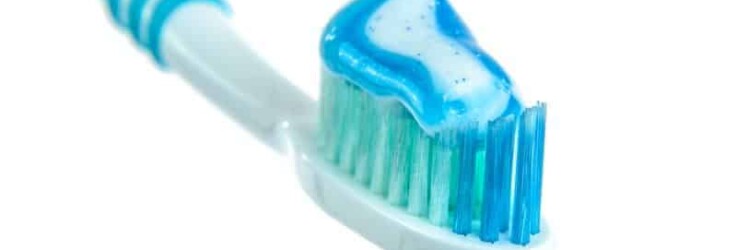5 Things That Can Harm Teeth

If you’re following an excellent oral health routine of brushing and flossing every day and seeing your dentist in Douglasville twice a year but still find yourself getting cavities, having tooth sensitivity, or needing dental restorations to help fix damaged teeth, other things may be to blame. The truth is, there are habits that many people do every day that can harm teeth.
- Chewing Ice, Nails, and Other Things
Many people find comfort in chewing ice, biting their nails, or nibbling on other things such as pens or pencils. However, gnawing on these comfort items can cause some serious oral health problems. Chewing on ice, biting your nails, or gnawing on pens can lead to broken or chipped teeth that will need to be fixed by your dentist in Douglasville. But these habits can also create tiny tooth fractures over time that you may not notice, until they turn into big cracks and potentially cause pain. Additionally, nail biting could also cause teeth to shift or place pressure on the jaw, causing pain.
- Opening or Holding Packages with Your Teeth
Teeth were designed for two reasons – to help us chew and to help us speak. They were not designed to open pesky packages or hold things that don’t fit into our hands. Using teeth for things other than what they’re meant to do could damage teeth. Some common problems associated with using teeth as tools are broken teeth, cracked teeth, broken restoration, or trauma to the soft tissues in the mouth.
- Using Too Much Force While Brushing
A common misconception is that you have to brush hard in order to really clean your teeth. However, the truth is, if you use too much force while brushing your teeth, you could actually cause harm. Brushing your teeth too hard could lead to an increased risk of decay, damage, and sensitivity. Always choose a toothbrush with soft bristles and gently move the brush over each tooth.
- Clenching or Grinding Your Teeth
Many people clench or grind their teeth in times of stress. This habit is often done subconsciously and we don’t even know we’re doing it. But there may be signs that you’re clenching or grinding your teeth, perhaps while you’re asleep. Consistent grinding or clenching can make teeth appear short and worn down. It can also cause tooth damage such as chips, breaks, or cracks. One of the most common signs of clenching or grinding is jaw pain, so make sure to mention any symptoms of TMJ to your dentist in Douglasville.
- Smoking or Using Chewing Tobacco
Tobacco use not only affects overall health, it can also negatively affect oral health. On the surface, smoking cigarettes or cigars or using chewing tobacco can cause tooth discoloration. But the concerns go much deeper. Using any type of tobacco can increase the risk of tooth decay, gum disease, tooth loss, and oral cancer.
We will always encourage our patients to brush and floss every day to help keep their mouths healthy. We also encourage our patients to be honest with us about any habits that may affect oral health. Afterall, it will only help us provide better, more personalized care.
What Asthmatics Need to Know About Their Oral Health

May is Asthma Awareness Month, which makes it a great time to educate people on this very common, yet very serious, disease. Around 25 million Americans, both children, and adults, have asthma, and it can’t be cured. While asthma predominantly affects the respiratory system and can cause shortness of breath, wheezing, coughing, and chest tightness, your dentist in Douglasville wants all asthmatics to know that it can also affect oral health.
Asthma & Oral Health
Even though asthma can’t be cured, the good news is that it can often be treated. Many asthma sufferers will use inhalers to help control their asthma symptoms, but other medications also exist. It’s there where oral health problems related to asthma begin.
- Dry Mouth
Inhalers and other asthma treatments can cause dry mouth. Dry mouth is an oral health condition that can be uncomfortable, but the truth is, it could also cause some dental concerns. When there’s not enough saliva in your mouth, bacteria and acids that would typically be washed away will hang around and attack teeth. This can weaken tooth enamel and increase the risk of decay, cavities, bad breath, and gum disease. Anyone experiencing dry mouth, whether they’re asthmatic or not, should talk to their dentist in Douglasville.
- Mouth Breathing
Another concern that often affects those with asthma is mouth breathing. When we have trouble breathing, we will automatically start breathing out of the mouth instead of the nose. Since asthmatics typically have more difficulty breathing than those without asthma, they are more likely to breathe out of their mouths to get the oxygen they need. However, mouth breathing can quickly cause dry mouth. So not only are asthmatics more likely to experience dry mouth due to medications, but regular mouth breathing also increases the risk.
How to Fix Dry Mouth
Dry mouth can leave us feeling constantly thirsty, and it is just simply uncomfortable. But the good news is that there are some tried and true tricks that can help alleviate dry mouth.
- Stay Hydrated. Those with dry mouths may already drink more water throughout the day. This is important. Drinking plenty of water throughout the day helps keep the mouth hydrated, which will more effectively wash away bacteria and neutralize damaging acids.
- Rinse With Water. After taking asthma medication, a quick rinse with water will help remove the drying ingredients, lowering the risk of dry mouth.
- Talk to Your Dentist. It’s important to communicate any health conditions to your dentist in Douglasville.
- . Knowing your health history helps your dental team customize treatment for you and notifies them to be on the lookout for any oral health concerns that may result from other health problems in the rest of the body.
As always, never stop any medication without first talking to your physician, brush and floss your teeth every day, and visit your dentist at least every six months for cleanings, dental x-rays, and checkups.



